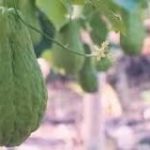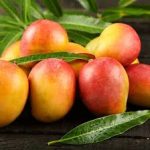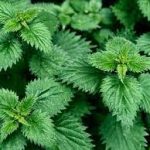
A low maintenance perennial herb, chives are grown for their pungent, mild tasting leaves that are delicious when chopped up finely and mixed into a salad or added to other dishes – they go particularly well with potatoes and egg.
It will grow back the following year. Wait to harvest your chives when the plant is at least six inches tall. Blossoms: Clip the flower at the base of its stem. The stem is edible but is often tougher and “woodier” in taste than its leaves.
Although all chives will eventually die down over winter, they will last a little longer than those left outside at the mercy of the colder conditions. When the plants do die down, later in winter, remove all dead material, and water occasionally throughout the winter.
The plant will produce more abundantly in its second year and thereafter you can continue to pick at will over the course of the summer and in mild climates through the winter. In cooler regions, the plant dies back naturally until spring when the bright green blades can be seen poking up from the soil.
Chives will multiply if flowers are allowed to seed out. Mature plants can be divided and transplanted every few years.
Shallow-Rooted Herbs
Chives (Allium spp.) are an ideal plant for a kitchen windowsill garden because they are tasty in many savory dishes including sandwich spreads, quiches and stir-fry dishes. According to the University of California Cooperative Extension, chive roots are the shortest of all at only 3 inches long.
How to harvest chives?
Always prune the herb early in the morning to avoid damage to the herb due to heat stress.Start cutting chive leaves from the outer region of the plant and then cut off inside leaves.When you grow chives from seeds instead of bulbs, then give the herb enough time to establish itself in the soil.
Storage. Fresh chives will keep in the fridge if wrapped in a paper towel in a resealable plastic bag for about a week. The stems can also be stood upright in a jar or vase in a plastic bag filled with a few inches of water.
Chives contain vitamin K, which is important for bone health and blood clotting. Other sources of vitamin K include leafy green vegetables, vegetable oils, and fruits including blueberries and figs. Chives also contain folate.
What Are The Health Benefits Of Chives?
- Fight Cancer.
- Protect The Heart.
- Improve Bone Health.
- Chives contain vitamin K, a nutrient quite important for the bones. …
- Ease The Digestive Process. …
- Detoxify The Body. …Boost Immunity. …
- Boost Vision. …
- Are Beneficial During Pregnancy.
How to make herb-infused oil:
- Prepare your jar. …
- Fill the jar to the top with herbs.
- Pour oil over the herbs slowly. …
- Cover the jar, give it a few shakes, and put it in a cool place inside your house. …
- Strain the oil into your storage bottles through a cloth-lined strainer. …
- Cork and label your bottles.



